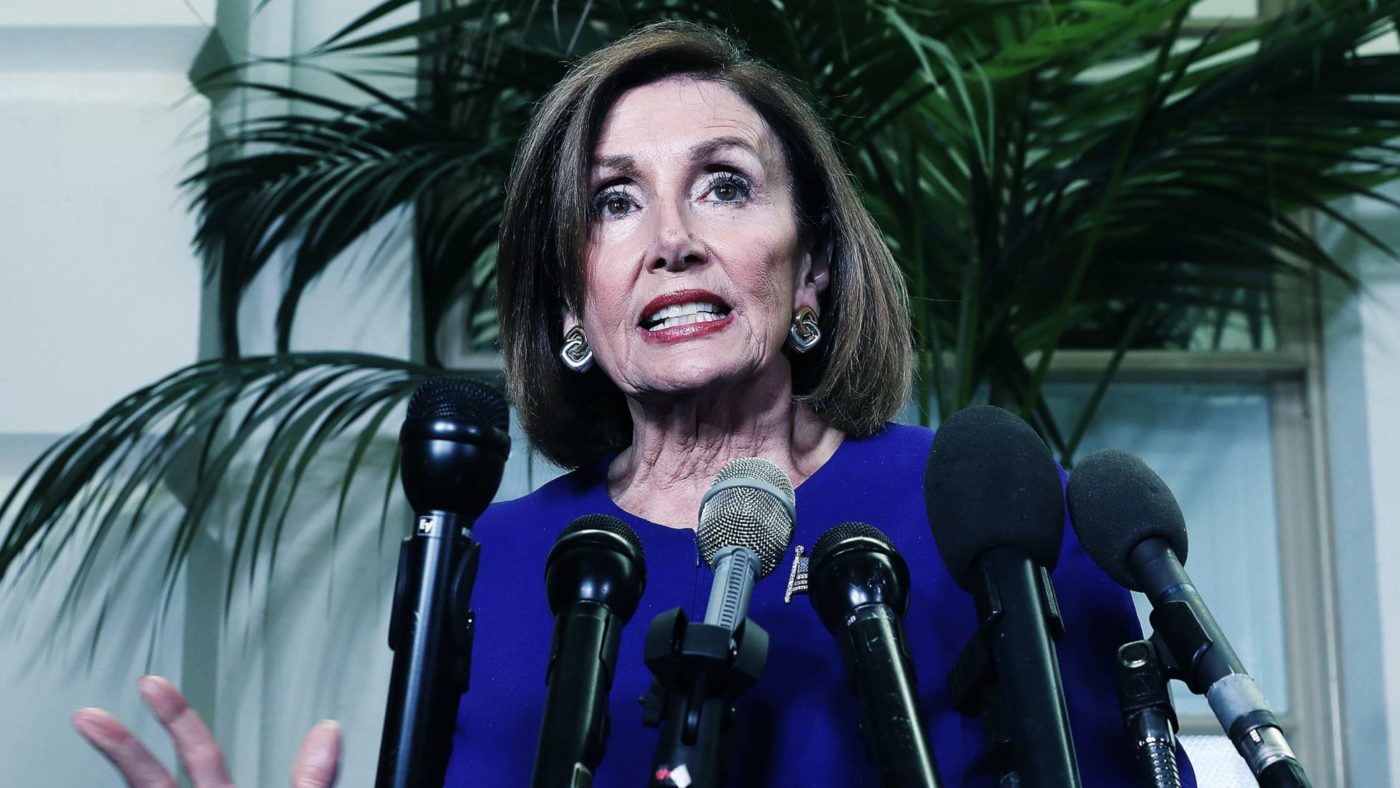On a July phone call with Ukrainian President Volodymyr Zelensky, Donald Trump pressured his counterpart to investigate Democratic Presidential frontrunner Joe Biden and his son Hunter, threatening to withhold aid until he did so.
That, at least, is the charge.
Unlike the disorientating web of Russia accusations that failed to deliver a blow, it can be clearly expressed in a single sentence. Unlike the more damning claims over Trump and Russia, it is unpolluted by outlandish tales of pee tapes and double agents. And unlike the Russia inquiry, it relates to actions taken by Trump while President.
It was the phone call that ultimately prompted many more Democratic legislators — including those who represent districts who voted for Trump — to call for impeachment. That heaped further pressure on Nancy Pelosi, the Democratic Leader of the House of Representatives, who for months has been dissuading her colleagues from pursuing impeachment proceedings that she has long seen as an unhelpful distraction. Yesterday. though, she did launch them, saying in a televised statement that “the actions taken to date by the President have seriously violated the Constitution” and arguing that Trump “must be held accountable — no one is above the law.”
According to a transcript of the call released today, Trump said to Zelensky, “There’s a lot of talk about Biden’s son. That Biden stopped the prosecution and a lot of people want to find out about that so whatever you can do with the Attorney General would be great. Biden went around bragging that he stopped the prosecution so if you can look into it… It sounds horrible to me.”
The President was keen to paint this as vindication, tweeting: “Will the Democrats apologize after seeing what was said on the call with the Ukrainian President? They should, a perfect call — got them by surprise!”
Trump has not been shy about the fact that he raised the Biden issue with Zelensky, and there is nothing in the transcript that connects that request to US aid. However, on Monday the Washington Post reported that Trump ordered his Chief of Staff, Mick Mulvaney, to withhold $400 million in military aid for Ukraine days before the call. Trump has conceded that this was true, but claimed the move was an effort to push other European countries to boost their contributions to the country.
Much now rests on the unknown intelligence agency whistleblower and his or her initial complaint. If he or she is able to testify publicly, then the stage is set for one of the most explosive political events in years.
However, none of this excitement has necessarily invalidated the many good arguments against Democrats going down the impeachment road. Exactly what political advantage they may gain from this political process is far from clear.
For all the uncertainty that exists at the moment, the Democrats have set in motion a chain of events that likely end with something Trump can paint as exoneration. Almost regardless of the facts, two-thirds of the Republican-held Senate are not going to find the President guilty of “treason, bribery, or other high crimes and misdemeanours”. The President’s best rebuttal — that this is all part of a campaign led by people who have never accepted the legitimacy of his presidency — has the considerable advantage of being partly true.
The Democratic hope is that, whatever the outcome, enough embarrassing details emerge along the way. However, some of that mud may also stick to the Democratic presidential frontrunner. And talking about impeachment comes with an opportunity cost of not talking about things that matter more to voters ahead of next year’s election.
And make no mistake, impeachment is unpopular. A Washington Post-ABC poll from July found 59% opposed to initiating impeachment proceedings and 37% in favour. If the facts have changed, will Americans change their mind? Pelosi’s reticence was likely informed not just by those polls, but also by the way in which the impeachment of Bill Clinton backfired on Republicans in the Nineties.
Now that Democrats have chosen this course of action, the political consequences depend on two things.
The first is the evidence, which we will hopefully see more of soon. Even in this supposedly post-truth world, the facts still matter.
The second is the way the Democrats conduct themselves. Trump is unlike any of his predecessors, but some old truths haven’t changed: if you can take steps to lower the estimation of your opponent in the eyes of voters, you should do so. If Democrats can be seen to calmly enforce the standards expected of a president who has solemnly sworn to “preserve, protect and defend the Constitution of the United States” then impeachment can be a powerful tool with which to demonstrate the ways in which Trump has demeaned the office he holds.
But then calmness is not the prevailing mood on either side of the aisle at this hyper-partisan and hyperbolic moment in American history.
CapX depends on the generosity of its readers. If you value what we do, please consider making a donation.


